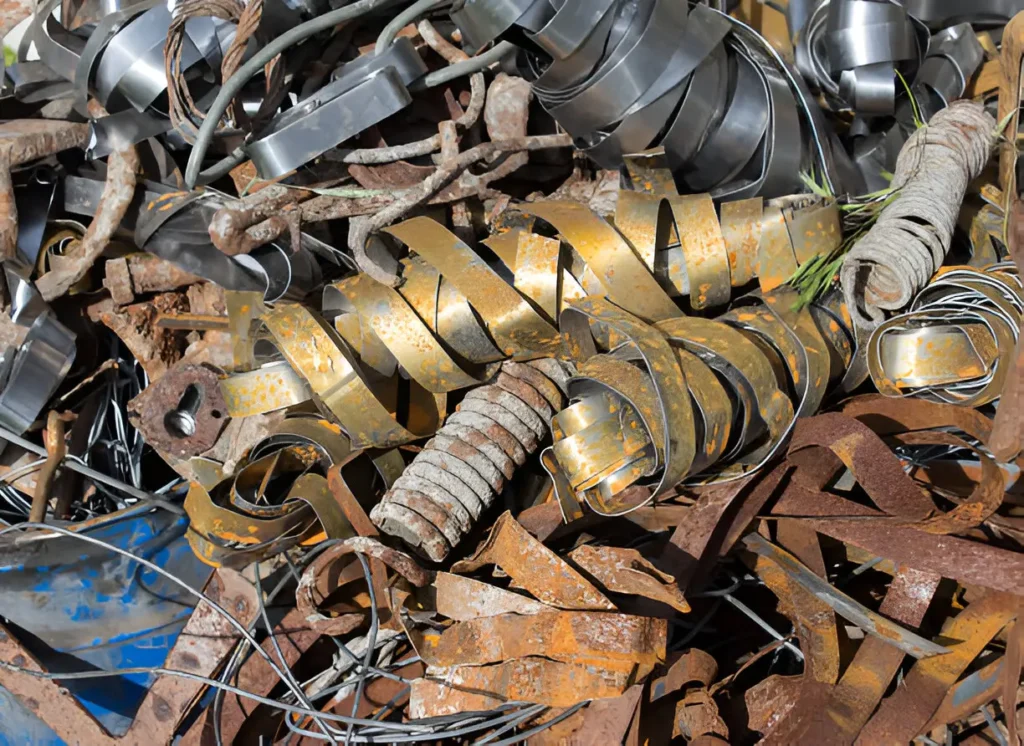Scrap metal recycling is not just about turning your junk into cash; it reflects a conscious decision to contribute to sustainable practices that benefit the environment. By becoming well-versed in the types of metals accepted by scrap yards and their associated values, you’re stepping into a world that combines economic savvy with environmental stewardship. Whether you’re a tradesperson, a manufacturer, or simply carrying out a home clean-up, understanding the nuances of metal scrap can turn your project into profit. Below, this article will equip you with the knowledge you need to efficiently prepare, sell, and handle your scrap metal safely.
Finding the Right Scrap Yard for Your Needs
Choosing the right scrap yard is a decision that can impact the convenience and profitability of recycling your metal. Look for a yard with a strong reputation for fair pricing and customer service. You can assess the credentials of a scrap yard through online reviews, recommendations from friends, or by checking with local business bureaus.
It’s also essential to confirm that the scrap yard you select can handle the type of metals you’re recycling. Some facilities specialize in certain types of scrap or have equipment better suited for processing specific materials. This ensures that your metal will be recycled efficiently and that you’ll receive optimal compensation.
Among the various options, connecting with reliable scrap yards for metal recycling can make all the difference in your endeavors. Different facilities might have unique procedures or incentives, so it’s worth investigating multiple options to find the best fit for your recycling needs.
Preparing Your Metal Scrap for the Yard
Proper preparation of your metal scrap is essential before taking it to a recycling facility. This starts with sorting your metals into different types and grades. A magnetic test can help you separate ferrous from non-ferrous materials, as a magnet will stick to ferrous metals due to their iron content.
Cleaning your scrap is the next step, removing any non-metal components like plastic, wood, or rubber. This is known as “cleaning” the metal, and while it may be time-consuming, it can significantly increase the price you receive. Some scrap yards will be deducted from the metal’s value if they have to clean it themselves.
Breaking down larger items into smaller, more manageable pieces can help maximize your profits by making the metal more accessible for processing. However, always keep safety foremost in mind when dismantling scrap items, using the proper tools and protective gear.
Navigating the Selling Process at the Scrap Yard
Upon arriving at the scrap yard, the process will generally begin with a weigh-in. Drive onto the scale with your load, and be sure to follow all instructions provided by the yard’s staff. The initial weigh-in captures the total weight of your vehicle and the metal combined; you’ll be weighed again after unloading to determine the net weight of the scrap.
After weighing, you’ll unload your scrap, often in a designated area or directly into a container. Some yards have equipment and staff to assist with this process, but others may require you to unload yourself. Always inquire about the unloading procedures before your visit to avoid any confusion on the day of the sale.
Payment is often calculated based on weight and the current market rates for the types of metal you’ve brought in. While payment methods can vary, most yards provide compensation through cash or check. Some facilities might offer immediate payment, while others could have a delay, such as if they need to perform additional material inspections.
Staying Safe and Compliant When Handling Metal Scrap
When dealing with scrap metal, safety is paramount. The handling of jagged edges, heavy weights, and potentially hazardous materials requires appropriate safety gear. Always wear gloves, eye protection, and sturdy footwear when preparing and transporting your scrap metal to prevent injuries.
Compliance with local and federal regulations for metal scrap recycling is critical. Some materials could be classified as hazardous, and improper disposal can lead to significant fines or legal repercussions. Investigate the regulations pertaining to your specific types of scrap and ensure adherence to avoid any complications.
Overall, turning metal scraps into a worthwhile venture hinges on understanding the material’s value, properly preparing it, selecting a suitable recycling facility, and carefully navigating the selling process while adhering to safety and compliance standards. By following the guidelines provided, not only can you attain a financial reward, but you’ll also contribute to the larger benefit of sustainability and environmental preservation.
Also Read- How Online Therapy Can Help You Overcome Loneliness
